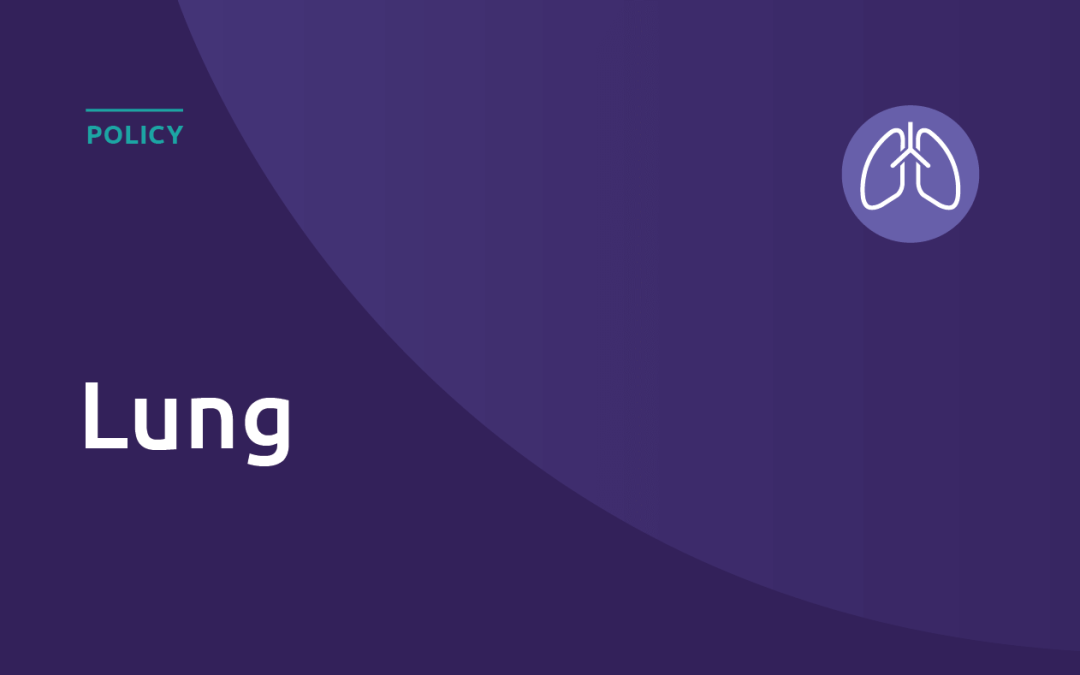Audience
- Lung and heart-lung transplant programs
- OPTN lung transplantation committee
Implementation date
Dec. 13, 2023
At-a-glance
Phase one: Update Data Collection for Lung Mortality Models, of two data collection changes for lung and heart-lung candidates has been implemented.
An overview of the phase one WaitlistSM changes is available below:
- Removed data collection not used to calculate the allocation score
- Revised data collection to improve data quality
- Transitioned to serial data collection so programs can add values for multiple dates, including six months prior to listing
- Added data collection on clinical criteria known to impact mortality
- Assigned values for candidates on ECMO or high flow nasal cannula to be used in calculating the score
Please visit this page for a complete list of the data collection changes in Waitlist associated with this release.
What you need to do
Lung/ heart-lung transplant programs are advised to:
- Change diagnosis for any candidates who should be listed under “Combined Pulmonary Fibrosis and Emphysema”
- Review assisted ventilation and supplemental oxygen fields and update as needed
- For candidates on “intermittent mechanical” – indicate if hospitalized or not
- For candidates on ECMO – indicate if on VA or VV ECMO, and if mechanically ventilated
- For supplemental oxygen – provide device type and oxygen needs at rest, with sleep, and with exercise
- Fill out new data fields as candidates come in for evaluations
Additional details
These data collection changes are expected to inform future updates to the mortality models used for calculating the lung CAS. These data collection updates will not change the variables, coefficients, rating scales, or weights used to calculate the lung composite allocation score (CAS), but values will be assigned for parts of the score for candidates on extracorporeal membrane oxygenation (ECMO) or high flow nasal cannula. For more details, read this memo posted on UNOS.org.
- Values greater than 26.33 L/min may be entered for supplemental oxygen though for the purposes of calculating the CAS, the maximum value of 26.33 L/min will be used
- Candidates on ECMO will receive maximum value for supplemental oxygen in the CAS if assisted ventilation & supplemental oxygen fields are up to date; this allows transplant programs to report supplemental oxygen needs in more detail for candidates on ECMO
- For candidates on high flow nasal cannula, supplemental oxygen is entered in L/min and % and the value that provides the higher CAS will be used in calculating the score
Phase two data collection changes will impact the TCR and TRR in TIEDI® and will be implemented in 2024. More details will be sent to members at a later date. For a complete list of changes coming, see the policy notice.
Education and resources
Online help documentation and the OPTN Lung CAS calculator have been updated. A list of data definition updates is also available in the policy notice and help documentation in Waitlist.
FAQs: Submitting supplemental oxygen values for lung candidates
Available in UNOS Connect:
- Lung Mortality Model Data Collection podcast episode
- Listen to Dr. Erika D. Lease and UNOS Policy Analyst Kaitlin Swanner discuss how data collected by the OPTN will be used to inform future lung allocation policy development
- UNetSM for Lung Continuous Distribution
- Nov. 15 lung community update webinar recording
- Data collection changes overview
- Highlights from the six-month lung CD monitoring report
- Development of Lung Offer Filters
Questions?
If you have questions relating to implementation, contact UNOS Customer Service at [email protected], or call 800-978-4334 from 8 a.m. to 7 p.m. ET.
For policy-related questions, contact [email protected].
The Organ Center is available 24 hours a day at 800-292-9537.
View the UNetSM System Status page

